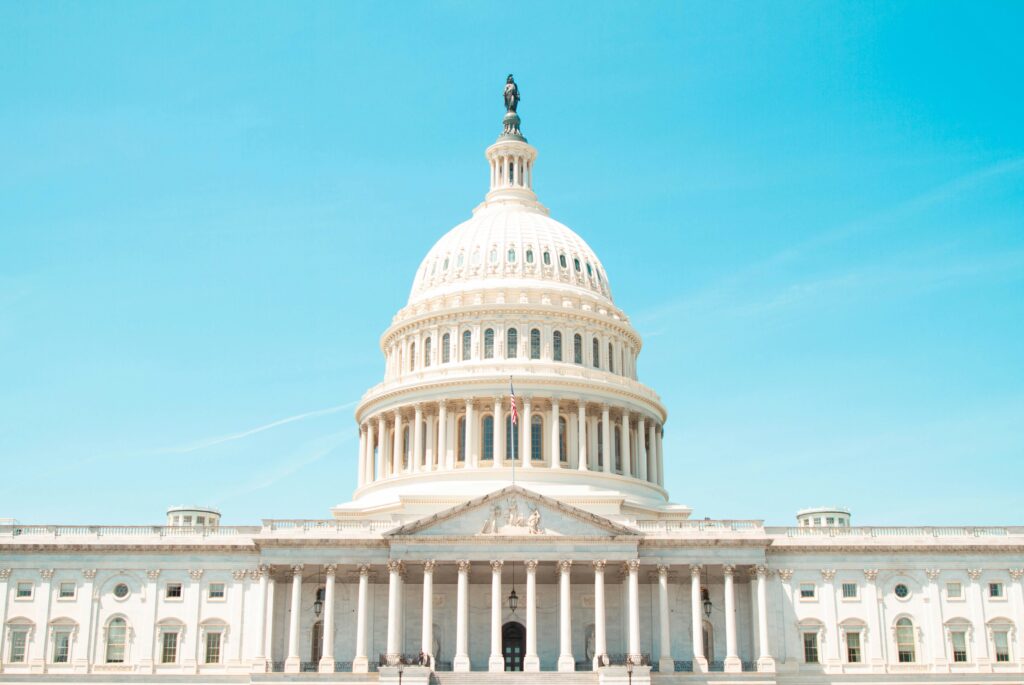Written by:
Nalcab Communications
Jun 9, 2025

On May 22, the House passed its version of the reconciliation package, H.R. 1, titled the “One Big Beautiful Bill Act.” Reconciliation is a process that allows Congress to pass budget-related legislation (i.e. taxes, spending, and/or changes to debt limit) with a simple majority, avoiding the threat of a filibuster. This bill aims to extend and expand parts of the 2017 Tax Cuts and Jobs Act (TJCA), while also increasing funding for defense and border security. To pay for these changes, the bill proposes large spending cuts across federal agencies.
The tax portion of the bill includes several major changes. It would expand the Opportunity Zone program to support rural investment and make permanent the tax deduction for pass-through income (which applies to many small businesses). It also strengthens the Low-Income Housing Tax Credit (LIHTC) by adding key elements from the bipartisan Affordable Housing Credit Improvement Act.
To ostensibly help offset the cost of these tax breaks, the bill raises taxes on investment income earned by private foundations through tiered excise rates, changes that could affect nonprofit funding. Notably, the bill leaves out two widely supported tax credit programs. It does not renew the New Markets Tax Credit Program, which is set to expire this year, and it excludes the Neighborhood Homes Investment Tax Credit, a bipartisan proposal that had been under consideration.
The bill now heads to the Senate, where it’s expected to undergo significant changes before potentially becoming law.
Opportunity Zones (OZ) Program
The bill proposes extending the Opportunity Zones (OZ) Program through December 31, 2033. However, it shortens the timeline for the original zones: the expiration date for the first set of designated Opportunity Zones would move up from December 31, 2028, to December 31, 2026. A new round of zone designations would then begin on January 1, 2027, and run through the end of 2033.
The proposal also tightens the criteria for qualifying as an Opportunity Zone, which could result in about 30% fewer eligible zones in the next round. Specifically, it:
To encourage more investment in rural communities, the bill offers new incentives:
While the bill aims to boost investment in rural and economically distressed areas, it lacks stronger measures to ensure those investments benefit working-class residents. Since 2017, about $100 billion has been invested through the OZ program, around 75% of it in real estate, with one-third of designated zones receiving no investment at all. Many of the zones that did receive investment were already experiencing economic growth.
To address these concerns, some lawmakers have proposed limiting OZ tax incentives to specific types of investments, such as operating businesses, and improving oversight. The House version of the bill does include new reporting requirements to measure the program’s impact on jobs, small businesses, and housing affordability in low-income areas. However, it’s uncertain whether these accountability measures will survive the Senate process. During the 2017 Senate negotiations of the TJCA, similar proposals were removed under the Byrd Rule, which lets senators block provisions not directly tied to the federal budget.
Extension and Enhancement of the Deduction for Qualified Business Income
The bill would make permanent a key tax break for small businesses, allowing owners of sole proprietorships, partnerships, and S corporations to deduct more of their business income from their taxes. Specifically, the maximum deduction would increase from 20% to 23%. Since nearly 90% of American small businesses benefit from this deduction, the change aims to give them more financial relief and help them better compete with large corporations.
Low-Income Housing Tax Credit (LIHTC) Program
The bill would expand the federal Low-Income Housing Tax Credit program to support the construction of more affordable rental homes. It includes three major changes pulled from a long-standing bipartisan proposal known as the Affordable Housing Credit Improvement Act:
These updates would mark the largest expansion of the LIHTC program since 2008 and are expected to help build about 500,000 new affordable rental homes over the next 10 years.
Remittance Tax
The bill proposes a 5% excise tax on money transfers (remittances) made by non-U.S. citizens or nationals, starting after December 31, 2025. The goal appears to be reducing the approximately $228 billion that is sent from the U.S. to other countries each year. However, this could significantly impact communities in Latin America and the Caribbean that rely on these funds. It may also lead more people to turn to informal, unregulated money transfer services, which often lack protections against fraud and theft.
Tax Credit Eligibility Restrictions
The proposal changes the rules for claiming the Child Tax Credit (CTC), requiring both the filer and their spouse to have valid Social Security Numbers (SSNs), even if their dependent children are U.S. citizens. This is a big change from current law, which lets filers of any legal status claim the credit as long as their children have SSNs. The same SSN requirement would apply to the American Opportunity Tax Credit, the Lifetime Learning Credit, and a proposed tax deduction on tips and overtime. These changes would create new obstacles for mixed-status families trying to claim these benefits. In fact, the new rules for the CTC alone could mean about two million children with valid SSNs might lose eligibility for the credit.
Private Foundation
The bill proposes a tiered increase in the excise tax on investment income for large private foundations with assets over $50 million. Foundations with assets between $50 million and $250 million would pay a 2.78% tax, those with assets between $250 million and $5 billion would pay 5%, and foundations with assets over $5 billion would pay 10%. This is a significant increase from the current tax rate of 1.39%, and it could generate about $16 billion in taxes from private foundations over the next ten years. As a result, foundations may have less income from their investments, which could reduce their ability to fund nonprofits that support our communities.
Nonprofit Unrelated Business Income Tax
The bill expands the definition of unrelated business income for tax-exempt organizations to include expenses for qualified transportation fringe benefits. This change would likely increase compliance costs for nonprofits while generating little to no additional tax revenue.
The bill presents the Senate with a complex foundation for negotiations, balancing the administration’s goals with sound community development policy needs. The legislation expands the LIHTC program, makes the pass-through business income deduction permanent, and extends Opportunity Zones through 2033, yet provides limited oversight to ensure these resources reach the communities that need them the most. Senators now negotiate the bill and will likely make significant changes before it becomes law.
